You Should Care About Your Cholesterol. Here’s Why.

Here’s what you should know.
Cholesterol 411
There are two types of cholesterol: “bad,” otherwise known as LDL (low-density lipoprotein) cholesterol, and “good,” classified as HDL (high-density lipoprotein) cholesterol. Think of it like this: LDL stands for lousy cholesterol and is the bad one.
Both HDL and LDL circulate in the blood. HDL is good because it acts as a scavenger, clearing harmful LDL cholesterol out of your arteries and bloodstream. But when LDL is more prevalent and rises at a greater rate than HDL, it results in a thick hard build-up of the waxy substance in your artery walls, narrowing them and making them less flexible. These build-ups and blockages of arteries are the reason behind many heart attacks and strokes[2].
What Negatively Affects Your Cholesterol
The cholesterol in your body comes from two sources: your liver and your diet. Your liver typically produces all the cholesterol that your body requires. Foods, specifically those higher in saturated fats, contribute to the cholesterol levels in your body beyond what’s already being made. This additional cholesterol sometimes results in levels that are higher than desirable. Let’s get a bit more specific.
- Genetics
Diets that are too high in saturated fats, trans fats and processed foods and too low in fibre, whole grains, fruits and vegetables are the most common causes of high cholesterol. However, one in 250 Canadians suffer from an inherited type of high cholesterol called familial hypercholesterolemia or FH. FH is caused by improper cell signalling of LDL cholesterol in the blood and can be even more dangerous than diet-based elevated cholesterol[3]. If you’re concerned about this or have a family history of high cholesterol, it’s a good idea to chat with your doctor and get your cholesterol levels checked. - Poor Diet
Meat, poultry and full-fat dairy, as well as some oils such as coconut and palm, are all sources of dietary cholesterol. And while these foods can contribute positively to your health, you probably don’t want to overdo it because they are also high in saturated fats, which are the fats cause your liver to increase cholesterol production. This means that if your body is regulating cholesterol levels normally, overconsuming these foods could increase cholesterol production in your body to unhealthy levels.[4]
Diseases Linked to High Cholesterol
High cholesterol is one of the most significant risk factors for heart attack, heart disease and stroke. And, if you add smoking, diabetes or high blood pressure into the mix, your risk is even greater.
The good news? While cholesterol is a major risk factor for these diseases, it’s also a controllable one. This means that there are lifestyle habits, foods and supplements that can all help you naturally lower your cholesterol.
Cholesterol Fighting Foods & Supplements
Certain foods and supplements have been associated with decreasing your LDL (“bad”) cholesterol. Two of the most well known include soluble fibre foods and omega-3 fats.
- Soluble fibre: This fibre binds to bad cholesterol in the blood and helps it exit your body more quickly. In addition to keeping cholesterol levels in check, more fibre in our diets helps us maintain a healthy weight by stabilizing blood sugar and helping to regulate appetite. Foods high in soluble fibre include whole grains such as rolled oats and barley, fruits and vegetables including Brussels sprouts and apples (skin is good!), beans and legumes. A fibre supplement also ensures that you’re hitting the daily recommended levels. When you head into your local reflex store, look for fibre powders that include any of the following: flax seed, psyllium husk, prebiotic inulin fibre from chicory root, organic sprouted chia. These powders are typically a simple addition to your morning smoothie or oatmeal, and you’ll be able to find some powders that provide over 50% of your daily fibre requirement in one serving.
- Omega – 3 Fatty Acids: Omega-3s are fats that your body depends on from your diet. In recent years, they have been associated with supporting cholesterol due to their ability to help increase HDL cholesterol and reducing the risk of cardiovascular disease. While you can get these fats from fatty fish as well as flax and chia, a supplement is typically a smart way to ensure you’re reaching recommended levels. Your supp options include fish oil, krill oil, flaxseed oil, or algal oil.[5]
- DASH Diet: this goes beyond adding a few supplements to your routine, but instead has you rework your diet. Known as the DASH (Dietary Approaches to Stop Hypertension) diet, this diet recommends stricter dietary guidelines like reducing saturated fats to 5% of daily calories, (which means significantly limiting meat, dairy, fried foods and oils). The diet promotes fruits, vegetables, whole grains which are higher in fibre as well as watching sodium[6].
In addition to focusing on a heart-healthy diet, regular exercise works in your favour. A sedentary lifestyle lowers HDL (that good cholesterol), and low HDL means more LDL in your arteries. So, keep hitting the gym and working towards those fitness goals.
And remember, while following these diet and lifestyle tips can help control your cholesterol, the best place to start is with your doctor or healthcare provider. It’s critical to get your levels checked to determine the best healthcare regimen for maintaining heart health for you.
For more nutrition tips, supp advice, or workout motivation find us on Instagram or Facebook. We are #ReflexNation.
References
[1]https://www.heart.org/HEARTORG/Conditions/Cholesterol/AboutCholesterol/About-Cholesterol_UCM_001220_Article.jsp#.WybsAxJKiT8
[2]https://www.heart.org/HEARTORG/Conditions/Cholesterol/HDLLDLTriglycerides/HDL-Good-LDL-Bad-Cholesterol-and-Triglycerides_UCM_305561_Article.jsp#.Wyb7MxJKiT8
[3] https://www.health.harvard.edu/newsletter_article/when-high-cholesterol-is-a-family-affair
[4]https://www.heart.org/HEARTORG/Conditions/Cholesterol/AboutCholesterol/About-Cholesterol_UCM_001220_Article.jsp#.WybsAxJKiT8
[5] https://foodandnutrition.org/blogs/stone-soup/choose-omega-3-supplements-lower-cholesterol/
[6] https://www.heart.org/HEARTORG/Conditions/Cholesterol/PreventionTreatmentofHighCholesterol/Prevention-and-Treatment-of-High-Cholesterol-Hyperlipidemia_UCM_001215_Article.jsp#.Wyb36hJKiT




